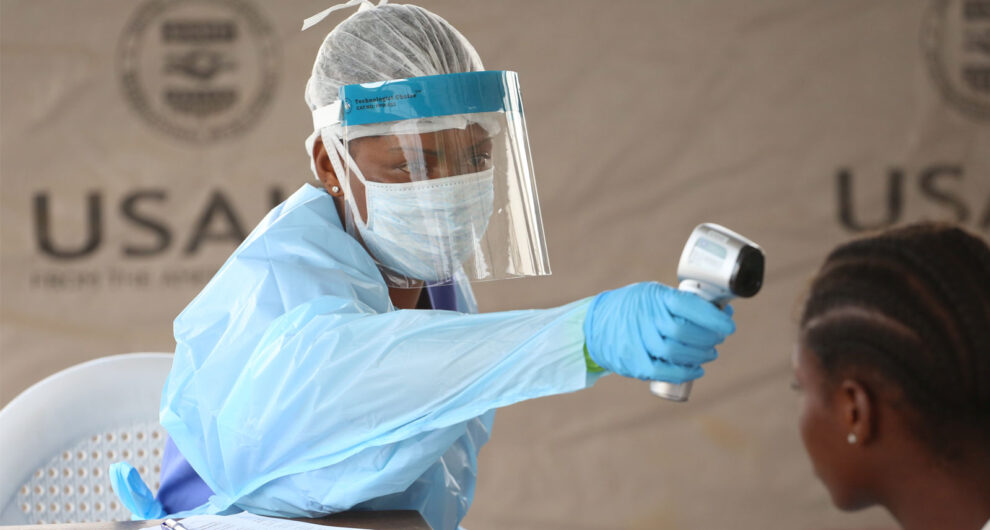Putting Countries Back on “The Path to Achieving the Sustainable Development Goals"

Sub-Saharan Africa has made significant progress on a number of health outcomes including an increase in skilled birth attendants (from 41 to 61 percent between 2000 and 2019) as well as reduction in under-five mortality (down from 153 deaths per 1000 live births in 2000 to 77 deaths per 1000 in 2019). However, progress has been uneven between, and within countries, with differentials based on socioeconomic characteristics, urban or rural residence, and geography.
The COVID-19 pandemic threatens the world and Africa in particular. The actions that countries undertake to build their capabilities today will determine the magnitude of the pandemic but also long-term effects of countries’ progress towards achieving the Sustainable Development Goals (SDGs), which could potentially be exacerbated by the deep inequalities being exposed by the pandemic. As key resources are being redirected to combating the pandemic, they leave behind gaps in health systems management and social services.
In order to make progress towards achieving the SDGs, evidence-based micro-planning and targeting is essential, including identification of hot-spots where there is slowest progress to target interventions. There are many interventions that have been shown to improve maternal, newborn, child, and adolescent health and nutrition, yet their uptake is low. The challenge for African countries with limited resources is identifying those interventions that have the greatest potential to change lives that should be scaled up. Cost effectiveness analysis to estimate the costs and gains of interventions is needed to help policymakers in prioritising the allocation of resources.
While COVID-19 has the potential to halt or reverse the utilisation of essential services, we can now leverage this moment of change to enact profound systems and norms change and get back on track to achieving the SDGs. The main aim of the project is to use data and evidence to develop a roadmap of essential interventions that have the greatest potential to change people’s lives and to help countries deliver on SDGs commitments.
The project’s interventions are guided by its five main objectives (in bold):
- Analysis of the potential effects of Covid-19 on health service delivery/uptake in Africa (Ethiopia, Kenya, and Nigeria) and projected impact on children, youth and health outcomes. AFIDEP will investigate the potential effects of COVID-19 on health service delivery, by looking at trends before and during COVID-19 periods. Recommendations will be made to ensure resilience in health service delivery during pandemics;
- Critical analysis of various evidence-based interventions that have the greatest potential to change people’s lives at scale and support countries achieve SDGs despite the effects of Covid-19;
- Develop country roadmaps to achieving SDGs and to advocate on evidence uptake to help countries take bold and transformational decisions;
- Micro-planning and targeting based on the roadmap. Analyses of secondary data such as Demographic and Health Surveys (DHS), Multiple Indicator Surveys (MIS) to highlight sub-national indicators of maternal, new-born, neonatal, child, and adolescent health, nutrition, WASH and NTDs. AFIDEP will implement micro-planning to map areas where interventions are required and could have the most health impact once implemented.
Overall, outcomes from the project will include the following and will be updated here as they are achieved.
- Scientific publications (at least two) per country
- Policy briefs (at least two) per country
- Policy engagement with respective government ministries in each country
Federal Ministry of Health – Ethiopia
Ministry of Health – Kenya
Ministry of Health – Nigeria
University of Southampton Worldpop (www.worldpop.org)
Key Details
| Dates: | October 2020 to Present |
| Aim: | Back-On-Track seeks to use data and evidence to develop a roadmap of essential interventions that have the greatest potential to change people’s lives and to help countries deliver on SDGs commitments.
|
| Where: | Ethiopia , Kenya , Nigeria |
| Project Manager: | Michael Chipeta |
Related Items
Related Events
Nov 2022

